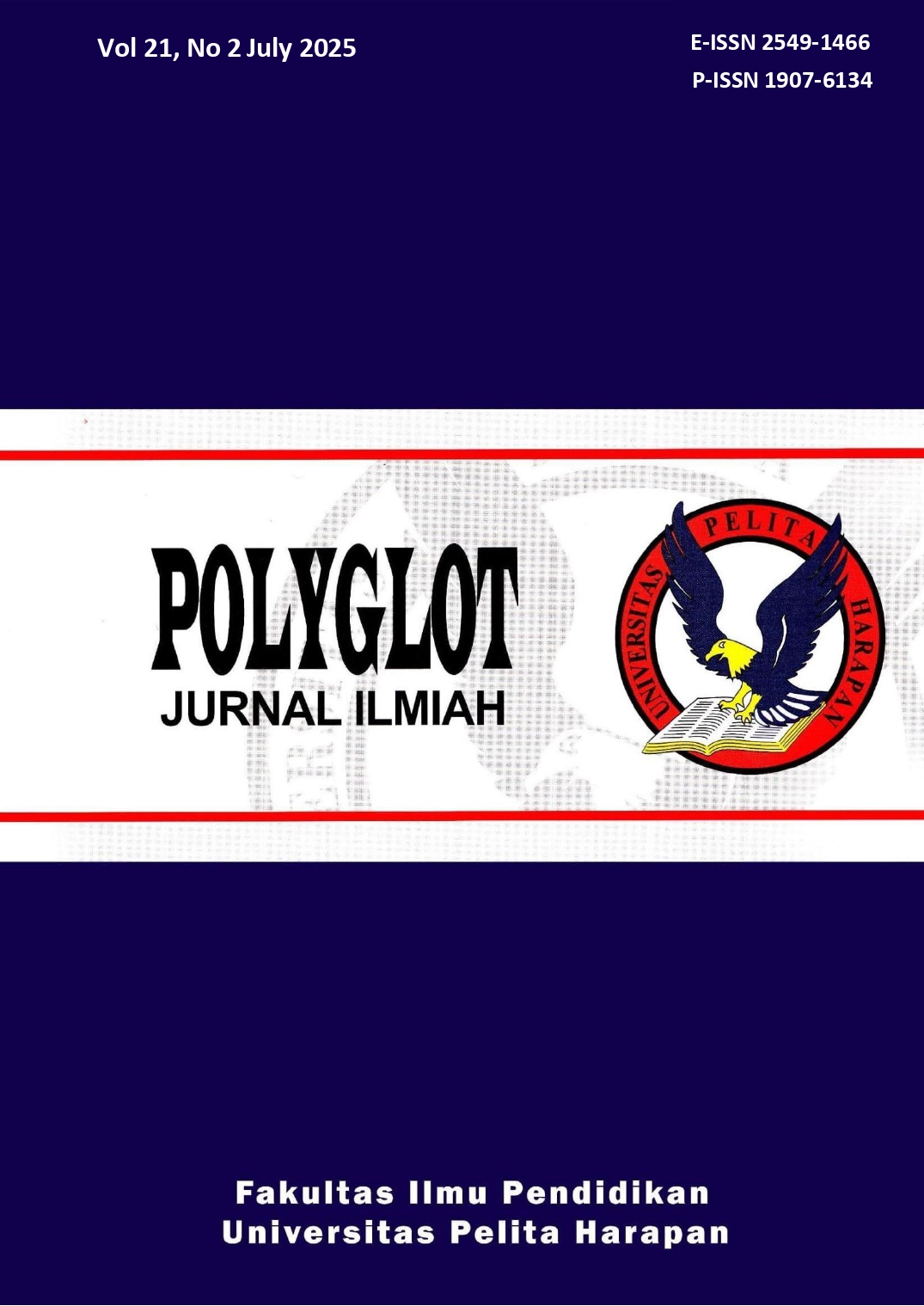STRATEGI MENGAJARKAN INTEGRASI PSIKOLOGI DAN KEKRISTENAN DI PENDIDIKAN TINGGI KRISTEN [STRATEGY TO TEACH PSYCHOLOGY AND CHRISTIANITY INTEGRATION IN CHRISTIAN HIGHER EDUCATION]
DOI:
https://doi.org/10.19166/pji.v21i2.10130Schlagworte:
Integration, Psychology, Christianity, Teaching strategy, Higher education, Integrasi; psikologi; kekristenan; strategi mengajar; pendidikan tinggiAbstract
There is not much effort has been made to teach the integration between psychology and Christianity in higher education in Indonesia. One of the efforts to teach the integration between psychology and Christianity in the bachelor program of psychology Universitas Kristen Krida Wacana is to conduct a class namely Psychology and Christianity (PC). In this article, the author describes the practice of teaching the integration of PC conceptually, practically, and personally for the bachelor students of psychology of Universitas Kristen Krida Wacana. The strategy to teach the integration of PC is, teaching the theoretical perspective of the integration of PC, summarizing an empirical study of PC, and creating discussion forum. The strategy to teach the integration of PC practically is, describing the integration of PC in the diverse contexts of life, discussing the specific topics of PC, and reporting on the implementation of PC in school and church settings. The strategy of teaching the integration of PC personally is, by writing an essay and self-reflection. The author used a survey method to evaluate the PC class. Three questions that are used in the survey are, students’ goals in participating in the PC class, their level of confidence in achieving their goal and also their goal attainment, and their perceptions about the integration of PC. The evaluation showed that most students perceived that they had attained the goals they set in participating in the PC class. They also observed that PC class is considered the main form of integration of PC.
Abstrak Bahasa Indonesia
Mengajarkan integrasi antara psikologi dan kekristenan di pendidikan tinggi Kristen di Indonesia belum banyak dilakukan. Salah satu upaya mengajarkan integrasi antara psikologi dan kekristenan dilakukan oleh program studi sarjana strata satu (S1) psikologi Universitas Kristen Krida Wacana, Jakarta adalah dengan mengadakan kelas yang bernama Psikologi dan Kristianitas (PK). Dalam artikel ini, penulis memaparkan mengenai praktik mengajarkan integrasi dari psikologi dan kekristenan secara konseptual, praktikal, dan personal bagi mahasiswa program studi sarjana psikologi. Strategi mengajarkan integrasi secara konseptual diantaranya adalah, membahas perspektif teoretis psikologi dan kekristenan, merangkum hasil penelitian empiris mengenai psikologi dan kekristenan, dan mengadakan forum diskusi. Strategi mengajarkan integrasi secara praktikal adalah dengan cara, membahas topik-topik integrasi psikologi dan kekristenan dalam berbagai konteks kehidupan, membahas topik-topik khusus integrasi psikologi dan kekristenan, dan laporan mengenai implementasi psikologi dan kekristenan di sekolah dan gereja. Strategi mengajarkan integrasi secara personal adalah dengan aktifitas menulis yakni menulis esai dan menulis refleksi. Penulis menggunakan metode survei untuk melakukan evaluasi terhadap mata kuliah PK. Tiga pertanyaan utama yang diajukan adalah mengenai, tujuan mahasiswa mengikuti kuliah PK, keyakinan diri dan ketercapaian mencapai tujuan tersebut, dan persepsi mereka terhadap integrasi. Evaluasi menunjukkan mahasiswa menilai bahwa diri mereka telah mencapai dengan baik tujuan yang mereka tetapkan dalam mengikuti mata kuliah PK. Mahasiswa juga menilai bahwa mata kuliah (MK) PK merupakan bentuk utama dari integrasi antara psikologi dan kekristenan yang mereka amati di kampus.
Literaturhinweise
Badley, K. (1994). The faith/learning integration movement in christian higher education: Slogan or substance? Journal of Research on Christian Education, 3(1), 13–33. https://doi.org/10.1080/10656219409484798
Nainggolan, B. C. & Ma, D. S. (2022). Student teachers’ experiences of spiritual formation and digital learning in a Christian higher education. Polyglot: Jurnal Ilmiah, 18(2), 218–233. https://doi.org/10.1966/pji.v18i2.5740
Esqueda, O. J. (2014). Biblical worldview: The Christian higher education foundation for learning. Christian Higher Education, 13(2), 91–100. https://doi.org/10.1080/15363759.2014.872495
Hall, M. E. L., Ripley, J. S., Garzon, F. L., & Mangis, M. W. (2009). The other side of the podium : Student perspective on learning integration. Journal of Psychology and Theology, 37(1), 15–27.
Hood, Ralph W Jr., Hill, P.C., & Spilka, B. (2018). The psychology of religion: An empirical approach (5th ed.). Guilford Press.
Johnson, J.,Dyke, D. J. V., & Yoo, H. (2021). Faith Integration in marriage and family therapy education: A Delphi study of the learning experiences of students enrolled in Christian faith-based MFT graduate programs. Journal of Psychology and Theology, 49(1), 22–37. https://doi.org/10.1177/0091647120914024
Lee, J. C., Mun, S. S., & Frederick, T. (2024). Teaching Psychology in the Classroom Based on Domains of Integration within Christianity. Journal of Faith in the Academic Profession, 3(1).
Ponto, J. (2015). Understanding and Evaluating Survey Research. Journal of the Advanced Practitioner in Oncology, 6(2), 168–171. https://www.ncbi.nlm.nih.gov/pmc/articles/PMC4601897/pdf/jadp-06-168.pdf
Prabowo, P. D., & Wijaya, H. (2023). Tren penelitian integrasi teologi dan psikologi di Indonesia: Systematic literature review. Danum Pambelum: Jurnal Teologi Dan Musik Gereja, 3(2), 236–252. https://doi.org/10.54170/dp.v3i2.250
Sorenson, R. L., Derflinger, K. R., Bufford, R. K., & McMinn, M. R. (2004). National collaborative research on how students learn integration. Journal of Psychology and Christianity, 23(4), 355–365.
Taylor, J. W. (2001). Instructional strategies for the integration of faith and learning.Retrieved from: https://christintheclassroom.org/vol_27/27cc_409-425.pdf
Downloads
Veröffentlicht
Ausgabe
Rubrik
Lizenz
Copyright (c) 2025 Evans Garey

Dieses Werk steht unter der Lizenz Creative Commons Namensnennung - Weitergabe unter gleichen Bedingungen 4.0 International.
Authors who publish with this journal agree to the following terms:
1) Authors retain copyright and grant the journal right of first publication with the work simultaneously licensed under a Creative Commons Attribution License (CC-BY-SA 4.0) that allows others to share the work with an acknowledgement of the work's authorship and initial publication in this journal.
2) Authors are able to enter into separate, additional contractual arrangements for the non-exclusive distribution of the journal's published version of the work (e.g., post it to an institutional repository or publish it in a book), with an acknowledgement of its initial publication in this journal.
3) Authors are permitted and encouraged to post their work online (e.g., in institutional repositories or on their website). The final published PDF should be used and bibliographic details that credit the publication in this journal should be included.





